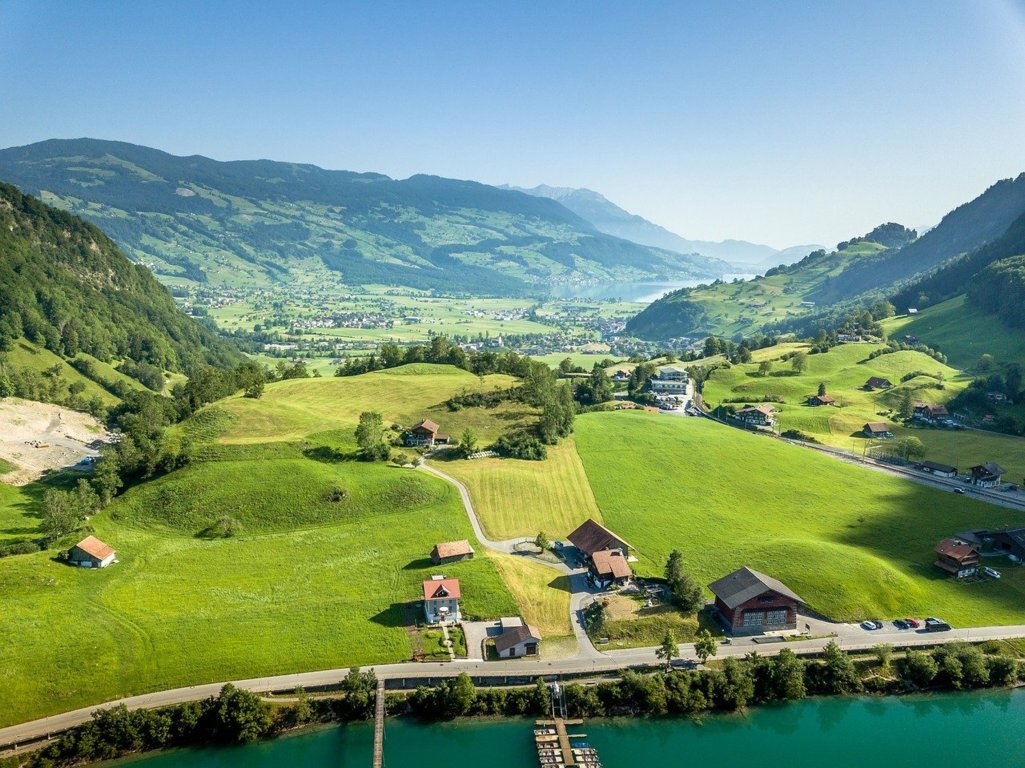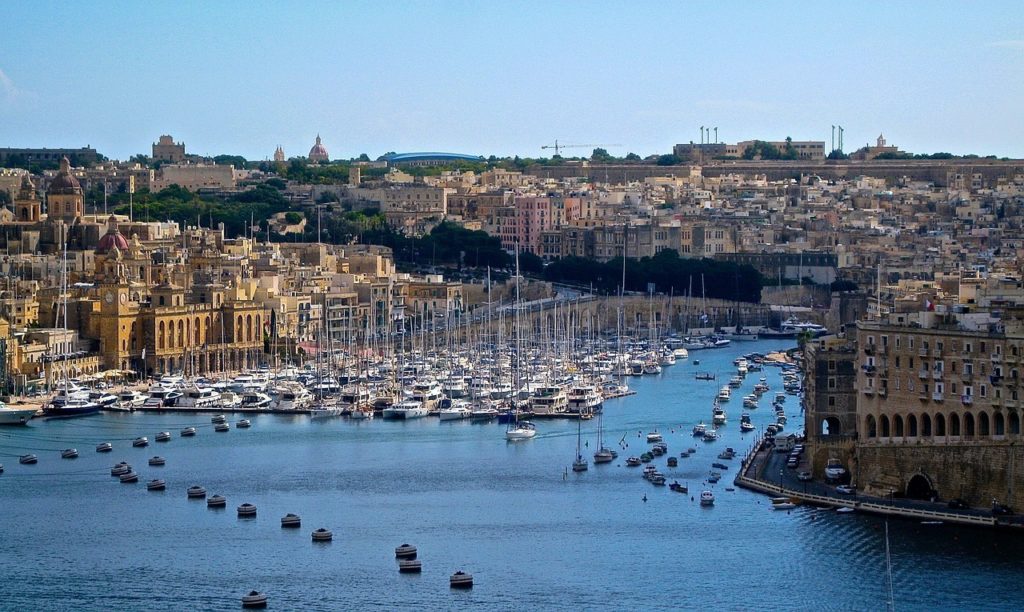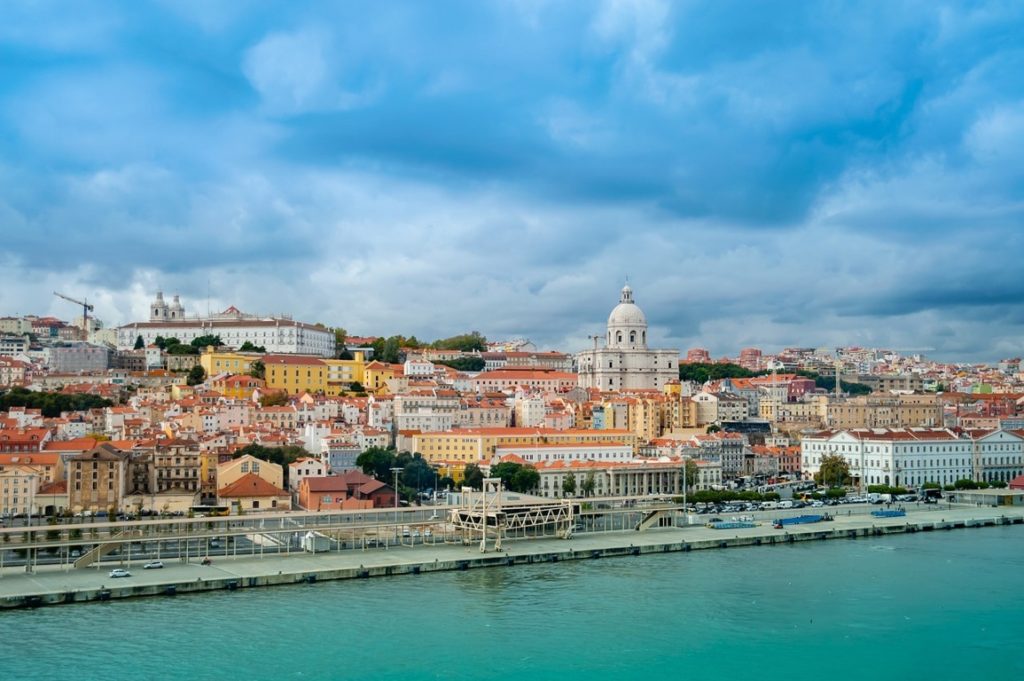Top 5 Best Countries to Retire in Europe

The word “retirement” makes most of us crave a life of luxury and ease. But even when you reach that stage, it’s not all about fun. In fact, it’s quite hard to make the transition from a busy professional life to a pastime old age where your responsibilities are few and far between. Everyone has their own priorities and things to consider, so it’s quite difficult for people to agree on what the best countries to retire in Europe are. Here is a quick look and we have tried to make a list of the top five countries that present themselves as one of the best countries to retire in Europe.
Best countries to retire in Europe
Anyone who is thinking about retiring or nearing retirement wants to have the best quality of life. And why wouldn’t you? You worked hard, you paid your taxes, and you are entitled to enjoy a decent life at the end of your career. Your golden years should be spent exploring the world around you, meeting new friends and seeing the sights. There are many beautiful places all around the world. We wanted to focus on Europe and have made a list of the top 5 best countries to retire in Europe that you can consider.
Switzerland
The quality of life in Switzerland is considered one of the best in the world. Switzerland is ranked first on the UN’s Human Development Index (HDI) and it has one of the highest per capita incomes in the world. The country has a low crime rate, an excellent healthcare system, and a high standard of living. Switzerland is at the top of list when we talk about best countries to retire in Europe.
The retirement age in Switzerland varies depending on your profession. Those who retire at 60 years old get an extra 2 years added to their pension payments, while those who retire at 65 years old get an extra 3 years added to their pension payments. All pensions are calculated based on your average salary over your working life, minus 35%. The maximum pension amount is CHF 2’500.-per month for a single person and CHF 1’200.-per month for a married couple or partnership with no children under 18 years old living together with them.
Switzerland has excellent medical facilities, including a network of specialist clinics in the major cities. The old-age pension is generous, with those over 65 years old receiving up to 75% of their previous salary after 40 years of service. Healthcare is free at the point of delivery and most Swiss citizens have private insurance as well as state health insurance. The climate is mild throughout the year, with average temperatures ranging from around -5C in the winter to 20C in the summer.
The Swiss have an average life expectancy of 83 years, which is among one of the highest in Europe. The country boasts high-quality education, which attracts teachers and students from all over the world. There are many universities and schools in Switzerland offering degrees in English or with dual language programs.

Malta
The United Nations Development Program (UNDP) ranked Malta as one of the top 10 countries in the world for quality of life. The UNDP Human Development Report 2016 ranks Malta as 8th on their list of countries with the highest level of human development (HDI). HDI is a composite statistic used to rank countries by their level of development. It takes into account factors such as life expectancy at birth; education attainment; and expected years lived in good health.
If you’re looking for a retirement destination that’s warm, sunny, and welcoming, you’ve come to the right place. Malta is a beautiful island in the Mediterranean Sea that offers quality of life, benefits after retirement, and social life. Maltese citizens receive free healthcare (including dental care) and education until 18 years of age. And if you want to retire early in Malta, you can do so with a pension from age 60.
The cost of living is low in Malta. You can get by on about €1,000 per month for rent, utilities, and groceries, and even less if you have access to healthcare through your employer or your spouse’s employer (which is common in Malta). The climate is pleasant year-round, with mild temperatures ranging from 10 °C (50 °F) during the winter months to 30 °C (86 °F) during the summer months. Malta has an excellent healthcare system with modern hospitals and clinics throughout the country.
Malta is one of the best countries to retire in Europe. It is located in the Mediterranean Sea and is a small island nation with a population of just over 450,000 people. Malta has a very high quality of life as well as great benefits for retirees. The Maltese government provides for all citizens: free education (including university), health care (including full dental care), child care and maternity leave, unemployment benefits, and old-age pensions. The cost of living in Malta is low due to its lower taxes on goods such as clothes or electrical goods.
The social life in Malta is amazing, with many clubs, restaurants, bars, and shopping centres to enjoy your golden years. Malta also has some beautiful beaches that are perfect for relaxing after work or just enjoying some time off while living there. The cost of living in Malta is also very affordable compared to other countries in Europe, making it a great place for expats who want to retire abroad.

Portugal
Portugal is one of the most popular destinations for retirees in Europe. Portugal is a beautiful country with a rich history, great food and wine, and plenty of sunshine. It’s also one of the most budget-friendly countries in Europe to live in. Portugal also has some of the best old age benefits and pensions in Europe. Most people retire from work at 55 years old, but there are many opportunities for early retirement as well. You must consider Portugal when looking for best countries to retire in Europe as an economical country to live.
Most retirees rate the quality of life in Portugal as high. The weather is generally mild year-round, with hot summers and mild winters. The cost of living is low compared to other European countries, with food costs being lower than many other countries in Europe. The country has a well-developed healthcare system, which includes free medical care for all citizens over 65 years of age. There are also special retirement homes available where you can live out your retirement years at an affordable cost.
Portugal offers many benefits for retirees, including pension payments from the government or private companies that have previously employed you. Pension payments are tax exempt if your gross income does not exceed €1,000 per month (€1,250 if married). If you have worked in another country, you may be able to claim benefits from their social security systems if they have.
Portugal has been attracting retirees since the 1960s, when the country was a very popular winter sun destination. Today, however, Portugal offers much more than just sunshine. The economy has grown steadily over the past decade, and Portugal is now one of the fastest growing economies in Europe. Portugal has one of the lowest rates of mortality in the world, and its citizens enjoy free healthcare at all times.
Another great aspect of living in Portugal is its excellent social life. If you’re looking for somewhere to live where there are plenty of different things going on all year round, then you’ll have no problem finding them here! From festivals celebrating local traditions to concerts by famous international artists, there really is something for everyone!

Spain
Spain has the fifth-largest economy in Europe and the tenth-largest in the world. It is also one of the most popular countries for retirement and expatriates, as well as being one of the best countries to retire in Europe. Spain offers a high standard of living, an excellent healthcare system, and a low cost of living. The country has a good social security system, including pensions and other retirement benefits, that are available to foreigners who have lived there for at least 10 years. The cost of living in Spain is also very reasonable compared to other European countries.
Spain’s sunny climate and beautiful beaches make it an ideal place for retirees who enjoy spending time outdoors. The country has over 2,000 kilometres of coastline along with mountains and forests that offer plenty of opportunities for hiking and other outdoor activities. The average temperature in July is around 32 degrees Celsius, while in January temperatures only drop to 9 degrees Celsius on average.
Spain has a rich history and culture that makes it an attractive retirement destination. Even though it has become more expensive in recent years, it still has some of the lowest costs of living compared to other European countries. Spain also has one of the highest life expectancies in Europe (81 years).
The Spanish government provides pensions for those who have contributed to their pension fund over the years. Pensioners are entitled to receive their pension as soon as they reach retirement age (65). However, there are many other benefits that come along with being retired in Spain, such as free public transportation and discounts on various services such as movies, theatres, and museums, among others.

France
France is a beautiful country with great food, wine, and culture. The quality of life in France is high, and the country has a long history of providing excellent healthcare for its citizens. France has one of the best medical facilities in Europe. Residents are entitled to free medical care under the universal healthcare system, just like all other European countries.
France has one of the highest life expectancy rates in Europe at 82 years old. France also has one of the lowest infant mortality rates in Europe at 3 deaths per 1000 births, as well as one of the lowest divorce rates in Europe at 0.4 divorces per 1000 marriages. Retiring in France can be expensive, though, especially if you want to live in one of the major cities like Paris or Marseille. However, there are many other places that cost far less than these cities but still have all the amenities you need for living, such as good schools and health care facilities.
France provides its citizens with many forms of social security when they retire, such as pensions and other retirement benefits. Residents who are over 65 years old can receive a pension from the government or private companies if they worked for those companies during their careers. Pensions in France are calculated based on salary history from your last working years (up to 40 years) before retirement age, which is 65 for men and 60 for women.
The best thing about retiring in France is that you will not have to worry about money. The French government pays people who are over 60 years old a monthly pension called the “minimum retirement pension” (RSA). This monthly payment varies according to your age and income. In addition to the monthly payment, there are housing benefits and healthcare benefits as well.

We hope this article helped you to shortlist the countries for retirement and after retirement life. Do let us know your favourite country and also tell us your list of best countries to retire in Europe and why. Also checkout list of top 15 best cities to live in Europe.




